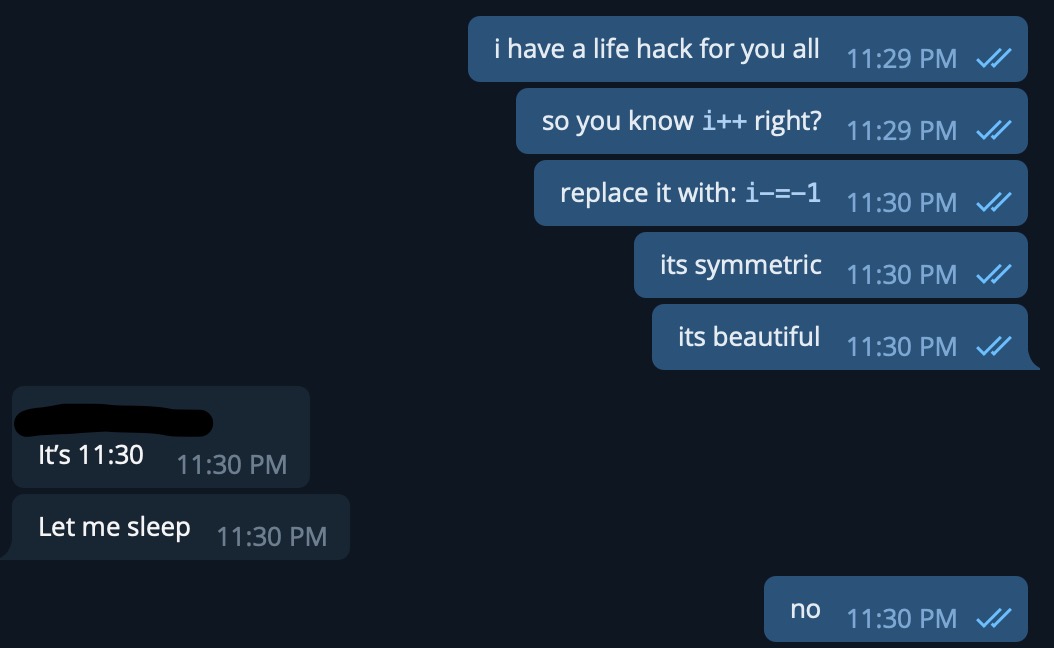this post was submitted on 19 Jun 2023
470 points (99.4% liked)
Programmer Humor
20039 readers
908 users here now
Welcome to Programmer Humor!
This is a place where you can post jokes, memes, humor, etc. related to programming!
For sharing awful code theres also Programming Horror.
Rules
- Keep content in english
- No advertisements
- Posts must be related to programming or programmer topics
founded 2 years ago
MODERATORS
you are viewing a single comment's thread
view the rest of the comments
view the rest of the comments

I gave it a shot in Compiler Explorer, with the following code:
GCC takes the
i-=-1and optimizes it intoADD DWARD PTR [rbp-4], 1, and changing it around to++iori++makes no difference.So, at least in C and C++, it works all the same. Even on unsigned integers.
It works the same because the value of the last expression in the
forloop is not used for anything. It's the side effect of that statement that counts. Eg, the value ofiis checked the next time the for loop is executed by the condition check. Try replacingiin the condition check instead withi++or++iand you would see different results.Something like:
for (int i = 0; ++i < 10;) { ... }